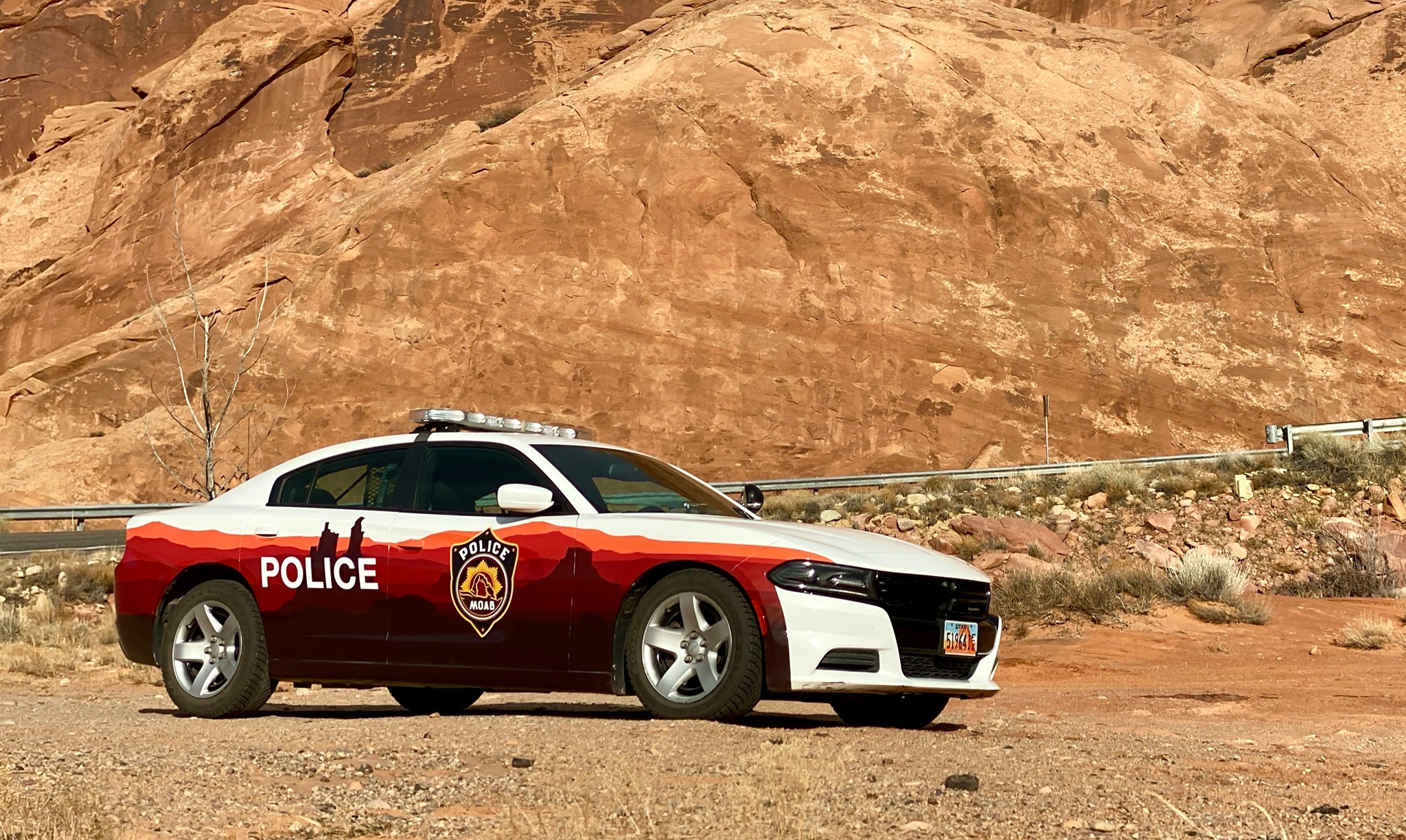Some information may be outdated.
During the Oct. 25 city council meeting, Moab City Police Chief Jared Garcia detailed a three-year strategic plan for the police department, which will act as a guiding document.
In the plan, he first defined a mission statement: “To provide exceptional public safety and community-oriented services while protecting the constitutional rights of all people in Moab.” Garcia outlined nine goals for the department, which include recruiting and retaining professional employees, creating opportunities for “positive community interaction and engagement,” establishing consistent enforcement of laws and ordinances, and obtaining law enforcement agency accreditation.
“It’s not easy to attain law enforcement agency accreditation—it’s a pretty ambitious goal—but I believe we can do it over the next couple of years,” Garcia said. Getting accreditation would mean that the department operates within a set of state- and nationally-recognized professional standards.
In addition to the goals, Garcia defined the department’s “measurements of success.” There were 13 total measures, each pertaining to the goals, including “recruit and retain a full staff throughout the 2023 calendar year,” and “establish a comprehensive procedure for language services to ensure effective communication between officers, staff, and public.”
The police department has been steadily growing since Garcia was hired; now, the department consists of 19 sworn police officers, three code enforcement officers, one code compliance officer, one victim advocate, and three civilian staff members. Garcia said he wants to add another victim advocate and social worker to the department’s staff; he’s currently looking to bring on a Utah State University student intern in the social worker position to show the city why having a social worker on staff would be beneficial.
Garcia said recruitment and retention are a priority for the department, and part of that is fair compensation: The Moab Police Department pays its officers less than other departments along the Wasatch Front, which Garcia said he hopes will change. He also wants to maintain a culture of professionalism within the department.
“We give our officers a lot of autonomy—they have a lot of opportunity to make decisions that significantly impact people’s lives, and it’s important that we hire and retain people that understand the consequences of their actions,” Garcia said.
The department is also striving to represent and support the Moab community, Garcia said, visitors and locals alike—he acknowledged that traffic noise is an issue the community is passionate about, and said the department is “committed to consistently enforcing laws related to traffic and equipment violations.”
Officer wellness is another priority for Garcia.
“Law enforcement is a challenging profession, not just for our officers but for our civilian staff as well,” he said. “There’s no way that I could adequately articulate how trauma impacts them, and the mindset they have to be in every single day as they go from a child abuse call to a domestic violence call to a simple traffic stop with a tourist … As leadership within the police department, we have to take a mindful approach to that.”
The department is creating opportunities for its staff to have access to mental health professionals, Garcia said, and he strives to help his staff have a healthy work-life balance.
Appreciate the coverage? Help keep local news alive.
Chip in to support the Moab Sun News.





